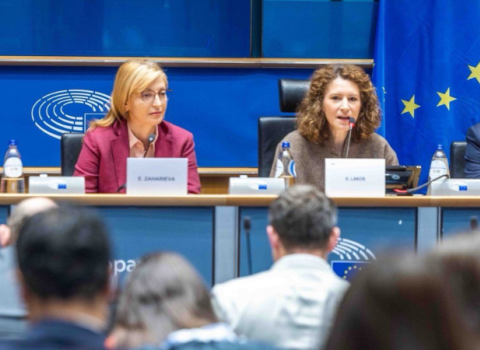What is going to be making the news in scientific research and research and innovation policy in 2015? Here - in no particular order - are the Science|Business predictions..…
Return of a smash hit
The Large Hadron Collider returns to active service in March. After a two year hiatus, the huge machine will be back in the serious business of knocking particles together at the speed of light.
The team at CERN, the European particle physics centre near Geneva, has spent the break upgrading the collider. “We practically disassembled it and put it back together,” said Paul Collier, CERN’s Head of Beams.
Scientists hope that with its souped-up firepower, the collider will unearth phenomena that fill in large gaps in physics knowledge – but CERN is staying sober. “It’s a new regime, we’ve never been here before, so we don’t have concrete expectations,” added Collier.
A new EU science adviser?
The end of 2014 saw a quiet discontent bubble up among scientists over the scrapping of the European Union’s Chief Scientific Adviser position. Three years ago Anne Glover, a Scottish molecular biologist, became the first holder of the office. Many fear she may be the last.
However, while appearing in no hurry to replace Glover, the EU Commission President, Jean-Claude Juncker, maintains he is still for independent science counsel. It is expected he will enlist the help of his colleague, Carlos Moedas, Commissioner for Research, in drawing up a plan before the summer for organising future scientific advice.
Battling Ebola
The great hope for 2015 is to bring an end to the Ebola outbreak in West Africa. Alongside the moves taken to strengthen the healthcare systems in the three most affected countries, there is also optimism that new therapies will prove effective against the infection. Clinical trials of two experimental drugs and three potential vaccines are underway. Initial results should arrive by June.
Great engineering feats
Alongside the British effort to build a car that travels faster than a bullet, the other big engineering adventure of 2015 will be the Swiss-led project to fly around the world in a solar-powered plane, the first venture of its kind. Taking flight in March, the trip will begin and end in Abu Dhabi.
Meanwhile, in France, teams will begin to integrate the components for ITER, the fusion energy project that is constructing the largest thermonuclear reactor ever built.
New labs open their doors
Two major new labs will open in the UK during the year: the €77 million National Graphene Institute this spring at the University of Manchester and the €1.3 billion Francis Crick Institute in London in November.
Will a new data protection law get over the line?
A new law aimed at beefing up data privacy rules in Europe, which has been under consideration for years and in the firing line of European medical researchers, is making progress toward a possible adoption this year. All eyes will be on governments when they meet in Brussels in March: if they can agree on a general approach, a deal may be wrapped up by the end of the year.
Countdown to climate accord in Paris
A new global climate deal will be under discussion at United Nations talks in Paris in December, when it is hoped to finalise a legally binding post-2020 agreement. A deal on emissions reached by the US and China last year could lay the ground for a new global pact.




 A unique international forum for public research organisations and companies to connect their external engagement with strategic interests around their R&D system.
A unique international forum for public research organisations and companies to connect their external engagement with strategic interests around their R&D system.